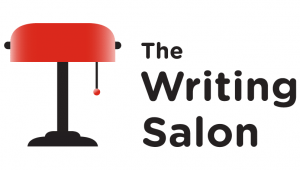What was your process for developing your novel, Hashtag Good Guy with a Gun?
I’ve always had a morbid fascination with conspiracy theories. That people believed these silly ideas seemed to me a conspiracy in and of itself. The 2016 election was a reminder of the kind of damage these ideas can inflict when weaponized by racists and misogynists, and the seeds for this novel were planted during the Inauguration, when he uttered the phrase “this American carnage” (which was the working title of the manuscript). That’s where it started—well, that and being stubborn enough to push forward when everyone else said it was “too soon.”
It then occurred to me the draft was a bit flat. It was mostly me raging against these two-dimensional things that were supposed to be people. And the manuscript really opened up when I started playing with the idea that these were people who wanted the world to make sense. Of course, they achieved this by believing nonsense, but there really is something tragic there—both for them and for us. I don’t necessarily believe these people deserve our consideration in any way–they’ve definitely earned everyone’s scorn. But forcing myself into their horrible little heads was the key to turning this from an idea into an actual story about people.
What inspired you to create your upcoming class at The Writing Salon?
There’s a concept in the world of pro wrestling known as the “Five Moves of Doom,” which is this idea that most successful performers don’t have to know a bunch of different moves, just five signature ones that you can do extremely well. I feel this is something that applies to writing as well. This doesn’t mean you don’t push yourself, or add new tricks to your bag, just that you find variations of the things you’re already good at.
Creating unsympathetic characters happens to be one of the things I’m 100% confident I know how to do well—very well, to be honest. Imbuing unsympathetic characters with pathos is definitely one of my ‘Five Moves of Doom’. I happen to also love unsympathetic characters—purity is boring—and wanted the opportunity to sit with a group of writers and really stew in everything that motivates their very complicated characters.
How do you balance your time between writing and teaching?
I think there’s a real pressure to find balance and to give both equal time, and I always try my best—but sometimes I fall short, and I think that’s important to acknowledge and accept. I don’t really have a great answer, other than you have to give yourself the time to write when you have to write. I’ve very much taken a “pay now or pay later” attitude when it comes to work and writing. If I get on a roll writing, I’m going to keep on writing and then put in the long hours to ensure I don’t fall behind on teaching work.
One of the things I had to come to terms with was the fact that I write slowly, which has made me a lot more patient in terms of output. I have friends who tell me they spent the morning writing 3,000 words, and for me 300 words is a pretty good day. I try to keep in mind that I’m writing even when I’m not writing.
Essays, a novel, and now a short story collection — are there any other projects in the pipeline?
I do have a short story collection, titled This Is the Afterlife, coming out in December of 2022. Other than that, there are lots of things in various states of disarray—a few short stories that aren’t anywhere near being anything worth talking about, a novella I set aside because I need to rethink what it’s actually about—that I’ll get back to when I’m good and ready.
As I said, I tend to write fairly slowly, so a lot of my process is just thinking things through over and over again. But I’m finally making some progress on the next novel (which, at my pace, means it’s probably about two years away). By my count, there are two sympathetic characters so far—one is a young woman who kills in cold blood, and the other is a Napoleon Hill-quoting real estate grifter. Other than that, everyone is awful.

Jeff Chon is the author of the short story collection, This Is the Afterlife, and the novel, Hashtag Good Guy with a Gun, which New York Magazine called “sick and nasty and funny until page 247, which is the last one,” and praised in The New York Times, The Irish Times, The Scotland Herald, and The Times of London. His stories and essays have appeared in The Seneca Review, The North American Review, Barrelhouse, Best Small Fictions 2021, and many others.

Jeff Chon is the author of the short story collection, This Is the Afterlife, and the novel, Hashtag Good Guy with a Gun, which New York Magazine called “sick and nasty and funny until page 247, which is the last one,” and praised in The New York Times, The Irish Times, The Scotland Herald, and The Times of London. His stories and essays have appeared in The Seneca Review, The North American Review, Barrelhouse, Best Small Fictions 2021, and many others.
